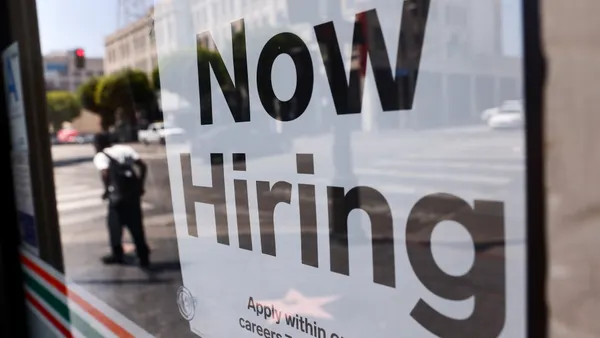Dive Brief:
- A California bill (AB 1175) which creates an alternative path to getting a certified public accountant license, is headed to Gov. Gavin Newsom’s desk after the state’s Senate passed it on Tuesday, according to a social media post made by the California Board of Accountancy which also said the governor now has 30 days to sign the bill into law.
- The legislation drew unanimous support from the Senate floor, passing after the third reading, according to the California legislature’s site. The legislation was previously passed by the State Assembly on May 5, with 70 votes in favor, zero opposed and two legislators listed as NVR, which stands for “no vote recorded.”
- In keeping with the surge of CPA licensure reform laws adopted this year, California’s new rules would enable applicants to satisfy licensure requirements via a new route which includes completing a bachelor’s degree, two years of work experience and passing the CPA exam. If signed into law, the new requirements are set to go into effect Jan. 1, 2027, while the existing pathway that includes 150 college semester hour credits, a year of experience and passing the CPA exam would sunset on Jan. 1, 2029, according to a July analysis of the bill.
Dive Insight:
The number of state legislatures that have acted to provide alternative routes to obtaining a CPA is inching close to the halfway mark.
By year’s end, California along with Massachusetts, New Jersey and New York are among those that have considered likely to put similar CPA pathways legislation on the books, bringing the total number of states with the new laws from the current 21 to 25 by year’s end. Like California, New York’s law gained legislative approval but awaits signature by the governor.
California’s bill has been closely watched by advocates of the licensing policy initiative because the state’s laws are expected to impact many companies and candidates there and help boost the momentum of the licensing changes.
“It’s exciting to see,” Eric O’Link, board chair of the Minnesota Society of CPAs, which helped lead that state’s early championing of the licensing change as a solution to the accounting talent shortage, said in an interview Wednesday. “It helps to have big states.”
The bill will not only remove the 150 hour college credit rule, which is effectively a fifth year of post-secondary education that some candidates don’t have: O’Link said it also will make it easier for CPAs to work across state lines if more states have aligned with the new rules.
California’s new legislation would also change the requirements that out-of-state CPAs need to meet to allow them to practice in the state.
“This bill revises the current practice privilege in California by eliminating the current requirement for the [California Board of Accountancy] to determine that a CPA whose principal place of business is not in California have ‘substantially equivalency’ with educational requirements along with the practice experience, and instead simply accept a license issued in another state as authorization,” an August analysis of the bill states. At the same time, CPAs practicing in California will still be required to be employed through a company registered with the California Board of Accountancy and meet certain other requirements.
The California Board of Accountancy and the California Society of CPAs did not respond to requests for comment.
The state’’s bill made it through the senate in the nick of time. If it had not done so by Sept. 12, the legislation would have had to have been reintroduced next year, CFO Dive previously reported.
Keep up with CPA licensure changes with CFO Dive’s tracker on the topic here.















